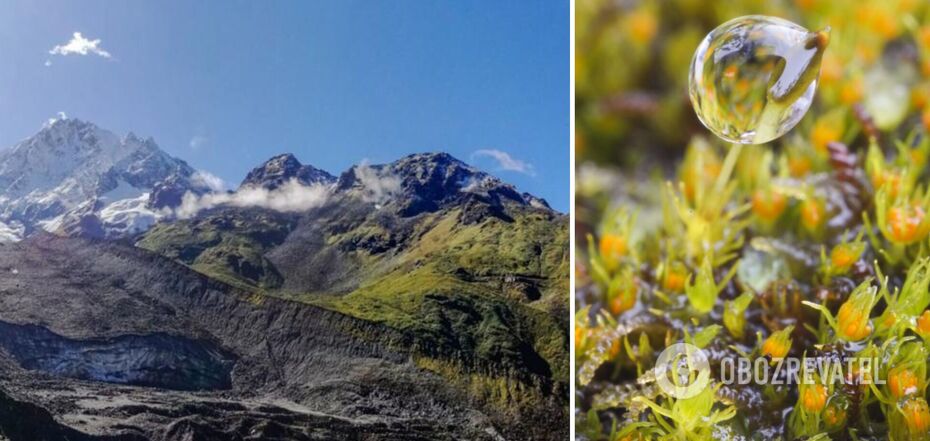Life
Unique 390 million year old plant may go completely extinct due to global warming
Global warming is likely to kill the world's oldest moss of the genus Takakia, which is already 390 million years old. This changeable organism has survived three mass extinctions that occurred on Earth.
This is stated in a study published in the journal Cell. Scientists for 10 years studied the genus Takakia, which has the largest number of genes among all mosses, giving it the ability to evolve rapidly.
As scientists note, an 11-year study conducted in the Himalayas showed that the moss is well adapted to high altitudes, resistant to extreme cold and intense ultraviolet light. But the rapid rise in global temperatures is causing the range of this moss to shrink. What's more, scientists have found that despite its ability to rapidly change genes, it is losing its range faster than any other moss around it.
Takakia consists of only two species of moss, they grow separately in the United States and Japan, but only on the Tibetan plateau in the Himalayas do the two species occur together.
That said, this plant is unlike any other: its evolutionary escape branched off from other mosses about 390 million years ago.
As Yikun He, a plant geneticist at Capital Normal University in Beijing, explained, Takakia's evolutionary position among plants is similar to that of the platypus among mammals. Just as the platypus has a lot of weird, not-quite-mammalian features - like egg-laying and a beak - Takakia has a bunch of features that make it not quite like other plants, like pinnate leaves and a lack of pores to control the flow of oxygen and carbon dioxide
At the same time, plant biotechnologist Ralph Reski of the University of Freiburg in Germany notes that it is so different from other mosses that "for a long time it was unclear whether it was a moss at all."
For 11 years, the researchers collected samples, analyzed genomes, gathered data on the surrounding ecosystem, and compared modern samples with a 165 million-year-old fossil.
The researchers found that although Takakia's genome is of average length for moss species - just over 27,400 genes - it has the highest number of rapidly evolving genes.
This speed of evolution was necessary when the Himalayas began to rise 65 million years ago, exposing the mosses on them to cooler temperatures and more ultraviolet light. Takakia had to adapt to the new conditions.
The study found that this moss has the ability to resist solar radiation by producing "large amounts of metabolites such as flavonoids and polyunsaturated fatty acids for protection." It also has genes for more efficient DNA repair, which is an important defense against harmful rays.
Takakia is also adapted to extreme cold and can lie dormant under snow for eight months of the year and then grow and reproduce in a three to four month period.
But even this ability to evolve is likely not fast enough to save this moss from climate change on Earth.
Over the 11 years of the study, scientists have documented that the average temperature in the region has increased by about four-tenths of a degree Celsius. This caused Takakia's cover to decline by about 1.6 percent per year - faster than four other native mosses.
The researchers predict that by the end of the 21st century, conditions for Takakia will be critically limited and by then the world's oldest moss may be extinct.
"Takakia has seen dinosaurs come and go. He's seen us humans come. Now we can learn something about sustainability and extinction from this tiny moss," Reski concluded.
Earlier OBOZREVATEL told about the fact that the largest millennial organism on Earth is slowly being eaten and may die.
Subscribe to OBOZREVATEL channels in Telegram and Viber to keep up to date.



























